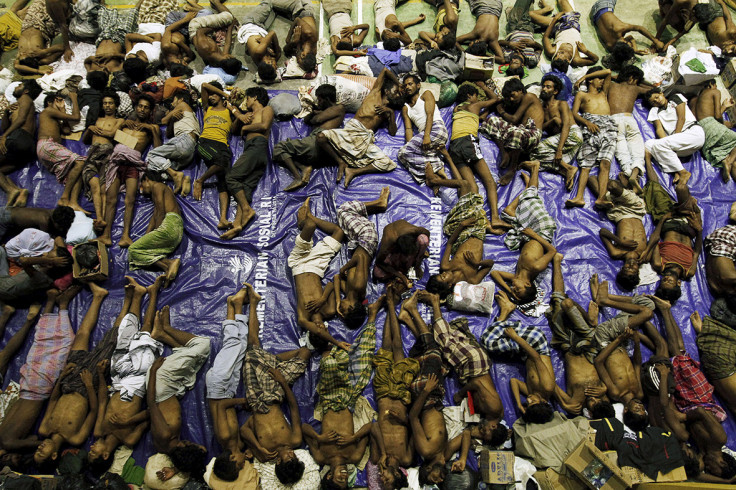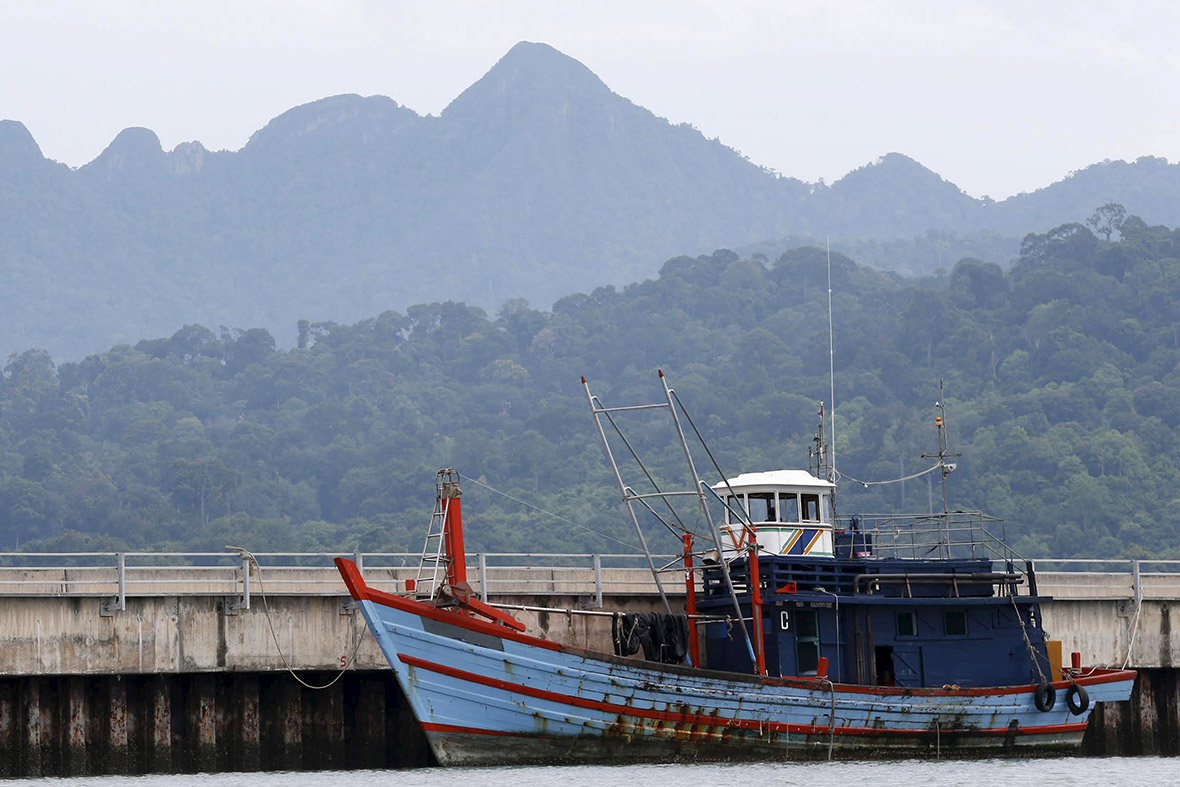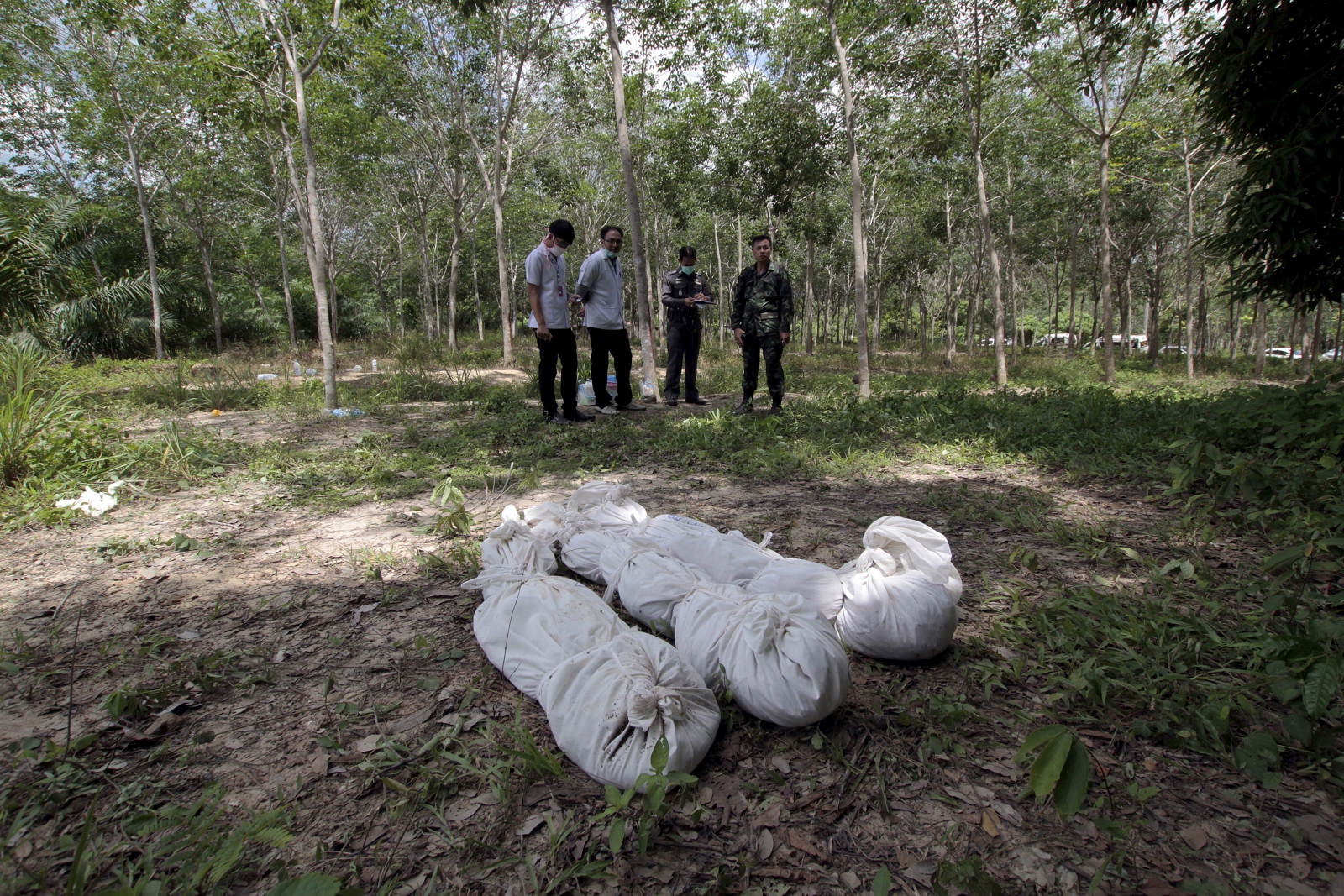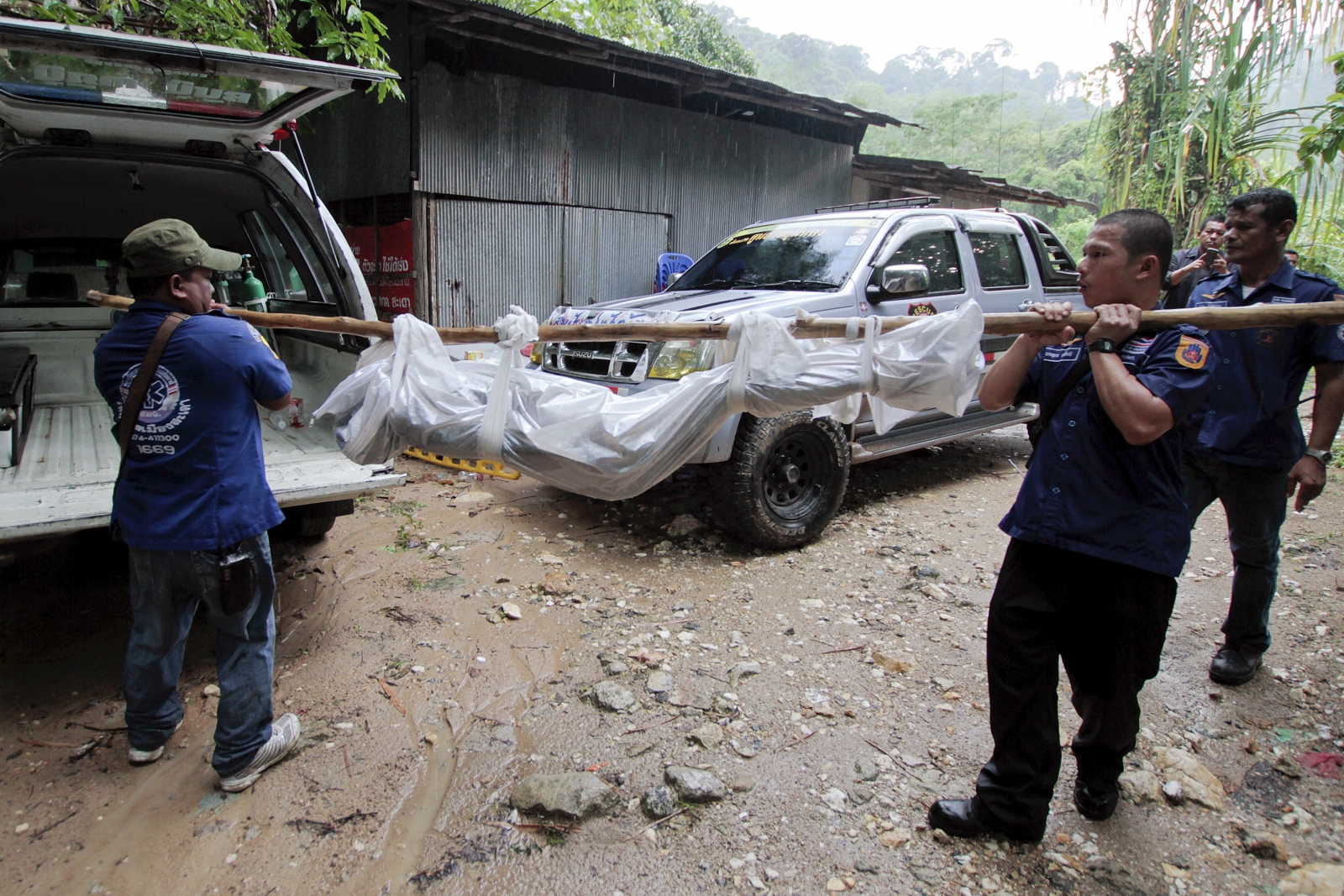South-east Asia migrant crisis: Mass graves in Thailand and 6,000 Rohingya and Bangladeshis stranded at sea [Photo report]
Hundreds of migrants abandoned at sea by smugglers in South-east Asia have reached land and relative safety in the past two days. But an estimated 6,000 Bangladeshis and Rohingya Muslims from Myanmar remain trapped in crowded, wooden boats, migrant officials and activists said. With food and clean water running low, many could be in grave danger.

There has been a surge in refugees arriving from impoverished Bangladesh and Myanmar to Malaysia and Indonesia following a crackdown on trafficking by Thailand, usually the first destination in the region's people-smuggling network.
Chris Lewa, director of the non-profit Arakan Project, which has been monitoring boat departures and arrivals for more than a decade, estimates more than 100,000 men, women and children have boarded vessels since mid-2012.
Most are trying to reach Malaysia, but recent crackdowns on human trafficking networks have sent brokers and agents into hiding, making it impossible for migrants to disembark – in some cases even after family members have paid $2,000 (£1,280 or €1,779) or more for their release, she said.
Lewa believes up to 6,000 Rohingya and Bangaldeshis are still on boats in the Malacca Strait and nearby international waters. Tightly confined, and with limited access to food and clean water, their health is deteriorating, she said, adding that dozens of deaths have been reported.




Four boats carrying nearly 600 people successfully landed in western Indonesia, with some migrants jumping into the water and swimming, but a fifth carrying hundreds more was turned away.
Indonesia's navy spokesman, First Adm. Manahan Simorangkir, said they were trying to go to Malaysia but got thrown off course. "We didn't intend to prevent them from entering our territory, but because their destination country was not Indonesia, we asked them to continue to the country where they actually want to go," he said.
Those who made it to shore aboard the other boats were taken to a sports stadium in Lhoksukon, the capital of North Aceh District, to be cared for and questioned, said Lt. Col. Achmadi, chief of police in the area.






"We had nothing to eat," said Rashid Ahmed, a 43-year-old Rohingya man who was on one of the boats. He said he left Myanmar's troubled state of Rakhine with his eldest son three months ago.
Muhammad Husein, one of those who landed in Indonesia, said the migrants were kept confined in the boats and given only small amounts of food and water. "We could see the land, we could see hills, but they would not let us off the boat," he said. "Many of us cried constantly but if we asked for water, we were beaten. They even beat the women."
He said his group and many other migrants were transferred to a bigger vessel and left adrift on the high seas. "We had to drink sea water and people just got sick. We kept looking for other boats. Finally [on Sunday] we saw lights that got brighter and brighter as we got closer. When we got close to land, some fishermen came and asked us where we were from. They called the [authorities] and we were told we are in Indonesia."



Police found a big wooden boat trapped in the sand in shallow waters at a beach of Langkawi, an island off Malaysia, and have since located 865 men, 101 women and 52 children, said Jamil Ahmed, the area's deputy police chief.
He added many appeared weak and thin and that at least two other boats have not been found.



One Rohingya refugee, Pronmina, said there were hundreds on her boat alone. "We had to walk in Maungdaw [in Rakhine State, Myanmar] for one night to cross to Bangladesh by rowing boat and then we floated for three months," Pronmina added, when asked how she got to Malaysia.
The Rohingya, who are Muslim, have for decades suffered from state-sanctioned discrimination in Buddhist-majority Myanmar, which considers them illegal settlers from Bangladesh even though their families have lived there for generations.
Attacks on members of the religious minority, numbering around 1.3 million, have in the past three years left up to 280 people dead and forced 140,000 others from their homes. They now live under apartheid-like conditions in crowded camps just outside the Rakhine state capital, Sittwe, where they have little access to school or adequate health care.
The conditions at home – and lack of job opportunities – have sparked one of the biggest exoduses of boat people since the Vietnam War.


Rohingya packing into ships in the Bay of Bengal have been joined in growing numbers by Bangladeshis fleeing poverty and hoping to find a better life elsewhere.
Up until recently, their first stop was Thailand, where they were held in open pens in jungle camps as brokers collected "ransoms" from relatives. Those who could pay continued onward, usually to Malaysia or other countries. Those who couldn't were sometimes beaten, killed or left to die.
Since 1 May, police have unearthed two dozen bodies from shallow graves in the mountains of southern Thailand, the apparent victims of smuggling rings.



The Bangkok Post reported that about 250 refugees have been found wandering around in the jungle-covered area of southern Thailand near the border with Malaysia over the past week, apparently people who were abandoned by smugglers.


© Copyright IBTimes 2025. All rights reserved.






















